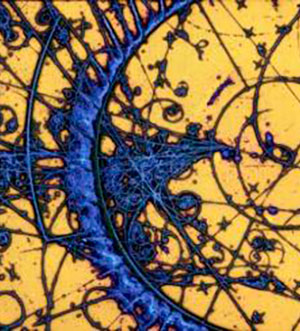
A major share of the Elementary Particle Physics (HEP) group activities is focused on the Compact Muon Solenoid (CMS) experiment at CERN. CMS is currently recording the proton-proton collisions at seven teraelectronvolt produced by CERN's flagship accelerator: the Large Hadron Collider (LHC). The LHC has opened a new high energy frontier for the field.
The most powerful ever human-made instrument to explore the ultimate nature of the universe, to discover the fundamental laws of nature: new underlying symmetries, undiscovered dimensions of the space and the ultimate tool to put and end to the long standing mystery of the mechanism responsible for the breaking of the electroweek symmetry. But Above all, the LHC allows probing a complete new territory and the most exciting result will be the unexpected discovery of new processes or particles.
To achieve this goal the LHC experiments have chosen the use the techniques of grid computing to organize the immense amount of data storage and processing power required. The EPP IFCA group has been one the pioneers of this field.
At IFCA, while exploring the LHC's uncharted landscape, we are getting ready for the future, contributing to the upgrade activities of the LHC to push forward again the energy and intensity frontier. We are also currently engaged in the R&D phase towards a new experiment, an electron-positron collider able to reach the Teraelectronvolt energy scale. The clean experimental conditions of the electron-positron experiments allows the precise determination of many of properties the expected and unexpected new particles to-be-discovered at LHC.
In connection with the ongoing experimental effort at IFCA, research is being carried by the theory group to match the experimental precision with the theoretical calculations. These calculation should allow us to select a particular theoretical framework out of the experimental results.
The main research lines in our group are:
Experimental HEP and Instrumentation
Particle Physics Phenomenology
Group Projects
Group Members
Group Publications
